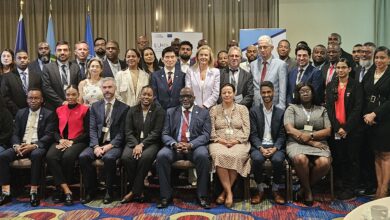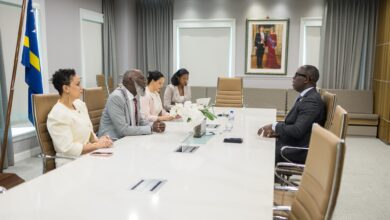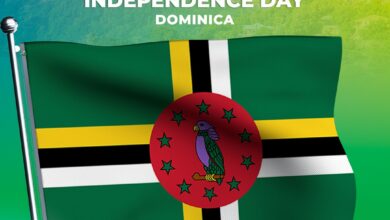The Council for Finance and Planning (COFAP) is being urged to formulate a strategy to guide the Caribbean Community (CARICOM) perspective in the newly created 13-man Global Tax Force meeting in London at the end of this week.
Addressing the opening ceremony of the Fourth Meeting of COFAP in Belize City, Belize, on 22 January 2001, CARICOM Secretary-General Edwin Carrington observed that there is need for much more technical work and continued vigilance on the part of the Region, especially by the officials directly engaged in the dialogue and negotiations “to guard against any rolling back”.
Antigua and Barbuda and Barbados will be representing CARICOM on the Global Tax Force which is made-up of six Organisation for Economic Cooperation in Development (OECD) and seven non-OECD countries.
Arguing for CARICOM’s new moves on the international front against the OECD ‘Harmful Tax Competition’ issue, described by some as a bug as powerful as the HIV/AIDS virus, Mr. Carrington stated that it is only after the end of the Second High Level Consultations in Tokyo, planned for 15-16 February, that “we shall begin to know how serious the OECD is about reaching a compromise on the issue”.
He further contended that the OECD agreement to the recent decision of the Barbados meeting to find a mutually acceptable process by which the principles of transparency, non-discrimination and effective exchange of information could be turned into commitments, constitutes a significant reversal of its earlier unilateral approach and threats of sanctions.
The CARICOM Secretary-General was up-beat on the preparatory work completed last week by COFAP officials in preparation for today’s Finance Ministerial deliberations, which he noted is designed to provide further substantial and analytical guidance to the CARICOM Single Market and Economy (CSME) strategy.
Continuing, Mr. Carrington singled out as a “key issue” of the COFAP deliberations, macro-economic policy coordination in the Region. In this regard, he noted the importance of the discussions on the monetary convergence and financial sector integration.
The CARICOM Secretary-General observed that the Meeting was being held at a critical juncture in the march towards a Single Market and Economy, and he pointed to other strategic initiatives being pursued by the Community. In this regard, Mr. Carrington made mention of the Action Plan devised by the Council for Trade and Economic Development (COTED), which endorsed the decisions taken at the Barbados Consultation between CARICOM directorate and Civil Society last November.
Among other things the Consultations focused on the early removal of restrictions on the movement of capital intra-regionally, and the proposed joint Ministerial meeting of the COTED, the COFAP and the COHSOD (Council for Human and Social Development), slated for April.





